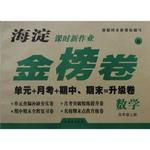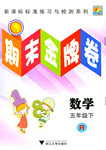
Discoveries in science and technology are thought by “untaught minds” to come in blinding flashes or as the result of dramatic accidents. Sir Alexander Fleming did not ,as legend would have it ,look at the mold on a piece of cheese and get the idea for penicillin there and then. He experimented with antibacterial substances for nine years before he made his discovery. Inventions and innovations(创新)almost always come out of laborious trial and error. Innovation is like soccer; even the best players miss the goal and have their shots blocked much more frequently than they score.
The point is that the players who score most are the ones who take the most shots at the goal-and so it goes with innovation in any field of activity. The prime difference between innovators and others is one of approach. Everybody gets ideas, but innovators work consciously on theirs, and they follow them through until they prove practicable or otherwise. What ordinary people see as fanciful abstractions, professional innovators see as solid possibilities.
“Creative thinking may mean simply the realization that there’s no particular virtue in doing things the way they have always been done.” wrote Rudolph Flesch, a language authority. This accounts for our reaction to seemingly simple innovations like plastic garbage bags and suitcases on wheels that make life more convenient: “How come nobody thought of that before?”
The creative approach begins with the proposition that nothing is as it appears. Innovators will not accept that there is only one way to do anything. Faced with getting from A to B, the average person will automatically set out on the best – known and apparently simplest route. The innovator will search for alternate courses, which may prove easier in the long run and are bound to be more interesting and challenging even if they lead to dead ends.
Highly creative individuals really do march to a different drummer.
1.What does the author probably mean by “untaught mind” in the first paragraph?
A.A person ignorant of the hard work involved in experimentation.
B.A citizen of a society that restricts personal creativity.
C.A person who has had no education.
D.An individual who often comes up with new ideas by accident.
2.According to the author, what distinguishes innovators from noninnovators?
A.The variety of ideas they have B.The intelligence they possess.
C.The way they deal with problems. D.The way they present their findings.
3.In the first sentence of paragraph 2, “…the players who score most are the ones who take the most shots at the goal …” is most similar to the meaning of ______.
A.He laughs best who laughs last. B.Never too old to learn.
C.Time and tide wait for no man. D.No pain, no gain.
4.The phrase “march to a different drummer” (the last line of the passage) suggests that highly creative individuals are ______.
A.working hard at following their goals
B.unwilling to follow common ways of doing things
C.devoted to the progress of science
D.concerned about the advance of society
 海淀课时新作业金榜卷系列答案
海淀课时新作业金榜卷系列答案 期末金牌卷系列答案
期末金牌卷系列答案 轻松课堂标准练系列答案
轻松课堂标准练系列答案科目:高中英语 来源:2012-2013学年河南省安阳一中分校高二第二次阶段考试英语试卷(带解析) 题型:阅读理解
Every year thousands of tourists visit Pompeii, Italy. They see the sight that Pompeii is famous for—its stadium and theaters, its shops and restaurants. The tourists do not, however, see Pompeii’s people. No one has lived in Pompeii for almost 2,ooo years.
Once Pompeii was a busy city of 22,000 people. It lay at the foot of Mt Vesuvius, a grass-covered volcano. Mt Vesuvius had not erupted for centuries, so the people of Pompeii felt safe. But they were not. In August of the year 79 AD, Mt Vesuvius erupted. The entire top of the mountain exploded, and a huge black cloud rose into the air. Soon stones and hot ashes began to fall on Pompeii. When the eruption ended two days later, Pompeii was buried under 20 feet of stones and ashes. Almost all of its people were dead.
For centuries, Pompeii lay buried under stones and ashes. Then in the year 1861, an Italian scientist named Ginseppe began to uncover Pompeii. Slowly, carefully, Ginseppe and his men dug. The city almost looked the same as it had looked in 79 AD. There were streets and fountains, houses and shops. There was a stadium with 20,000 seats. Perhaps the most important of all, there were everyday objects, which tell us a great deal about the people who lived in Pompeii. Many glasses and jars had some dark blue color in the bottom, so we know that the people of Pompeii liked wine. They liked bread too; metal bread pans were in every bakery. In one bakery there were 81 round, flat loaves of bread—a type of bread that is still sold in Italy today. Tiny boxes filled with a dark, shiny powder tell us that women liked to wear eye-makeup.
Ginseppe has died, but his work continues. One-fourth has not been uncovered yet. Scientists are still digging, still making discoveries that draw the tourists to Pompeii.
【小题1】Why do large number of people come to Pompeii each year?
| A.To visit the volcano. | B.To shop and eat there. |
| C.To watch sports and plays. | D.To see how Pompeiians lived. |
| A.Because Ginseppe and his men dug it slowly and carefully. |
| B.Because the city was buried alive and remained untouched. |
| C.Because scientists successfully rebuilt the city with everyday objects. |
| D.Because nobody had lived in the city ever since the volcano erupted. |
查看答案和解析>>
科目:高中英语 来源:2012-2013学年河南省安阳一中高二下学期第一次阶段测试英语试卷(带解析) 题型:单选题
–How do you like Albert Einstein?
--________.
| A.I like him very much |
| B.He invented “theory of relativity” |
| C.He is great and creative |
| D.His discoveries have affected our life |
查看答案和解析>>
科目:高中英语 来源:福建省福州三中2009-2010学年度高二下学期期末考试试题(英语) 题型:阅读理解
第二节.根据课文适当填空.(每小格1分,总分11分)
She had almost reached her destination when a delicious smell 68 her progress and she stopped .So the men had brought home the meat for the 69. !The smell of cooking meat filled the air 70. her, and her senses became 71. with hunger…. 72. she sat down, only to be scooped up by her laughing, shouting sister, Lala smiled with 73. .
Leave the beaten track occasionally and 74. into the woods. Every time you do you will be 75. to find something that you have never seen before. Follow it up, 76. all around it, and before you know it, you will have something worth thinking about to 77. your mind. All really big discoveries are the result of 78. .
查看答案和解析>>
科目:高中英语 来源:2013-2014学年高考二轮复习考前冲刺(五)英语试卷(解析版) 题型:完型填空
When a person is curious about something,it means he is interested in it and wishes to know more about it.There is____wrong with curiosity in itself.Whether it is good or bad____on what people are curious about.
Curiosity is always silly or wrong.Some persons with nothing to do are____of curiosity about what their neighbours are doing.They are____to know what they are eating or drinking,what they are____home or taking outside,or____they have come home so early or late.To be interested in these things is____because they are not at all___.It is none of their____to know what their neighbours do or are doing.Such curiosity is____not only foolish but also____.For most probably,it____to a small talk which often brings harm,shame or disrespect to others,and thus____their feelings.
On the other hand,there is a____curiosity—the curiosity of wise men,who____at all the great things and try to find out all they____about them.Columbus could____have found America if he had not been___.James Watt would not have made the steam engine____his curiosity about the raising of the kettle lid.All the discoveries in human history have been made____a result of curiosity.But the curiosity is never about unimportant things which have little or nothing to do with the happiness of the public.
1.A.much? B.nothing
C.something? D.none
2.A.keeps? B.puts
C.takes? D.depends
3.A.full? B.fond
C.proud? D.out
4.A.permitted? B.worried
C.satisfied? D.anxious
5.A.taking? B.bringing
C.going? D.thinking
6.A.if? B.when
C.why? D.whether
7.A.silly? B.necessary
C.possible? D.funny
8.A.wrong? B.bad
C.important? D.right
9.A.work? B.housework
C.duty? D.business
10.A.nothing? B.all
C.something? D.everything
11.A.instructive? B.useless
C.harmful? D.dreadful
12.A.refers? B.leads
C.causes? D.follows
13.A.hurts? B.effects
C.shows? D.oppresses
14.A.terrible? B.sudden
C.strange? D.noble
15.A.expect? B.like
C.wonder? D.doubt
16.A.know? B.study
C.must? D.can
17.A.never? B.certainly
C.probably? D.finally
18.A.famous? B.careful
C.curious? D.hard
19.A.for? B.without
C.in? D.from
20.A.because? B.as
C.after? D.during
查看答案和解析>>
科目:高中英语 来源:2013-2014学年浙江省高三上学期第一次阶段性测试英语试卷(解析版) 题型:单项填空
The new invention made last month would have a variety of _______ in industry.
A. discoveries B. profits C. guidances D. applications
查看答案和解析>>
湖北省互联网违法和不良信息举报平台 | 网上有害信息举报专区 | 电信诈骗举报专区 | 涉历史虚无主义有害信息举报专区 | 涉企侵权举报专区
违法和不良信息举报电话:027-86699610 举报邮箱:58377363@163.com